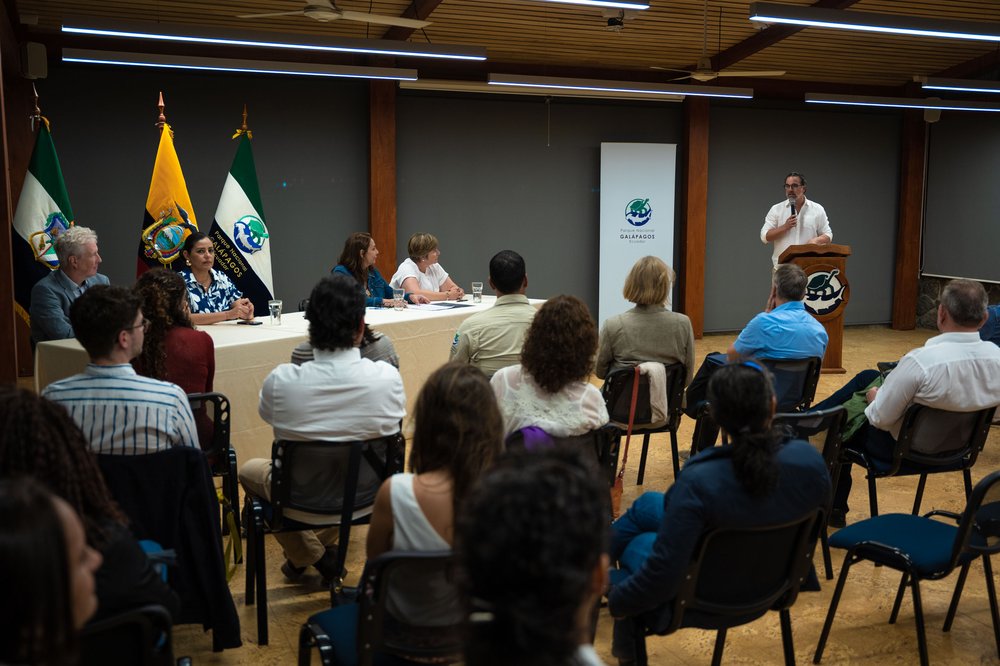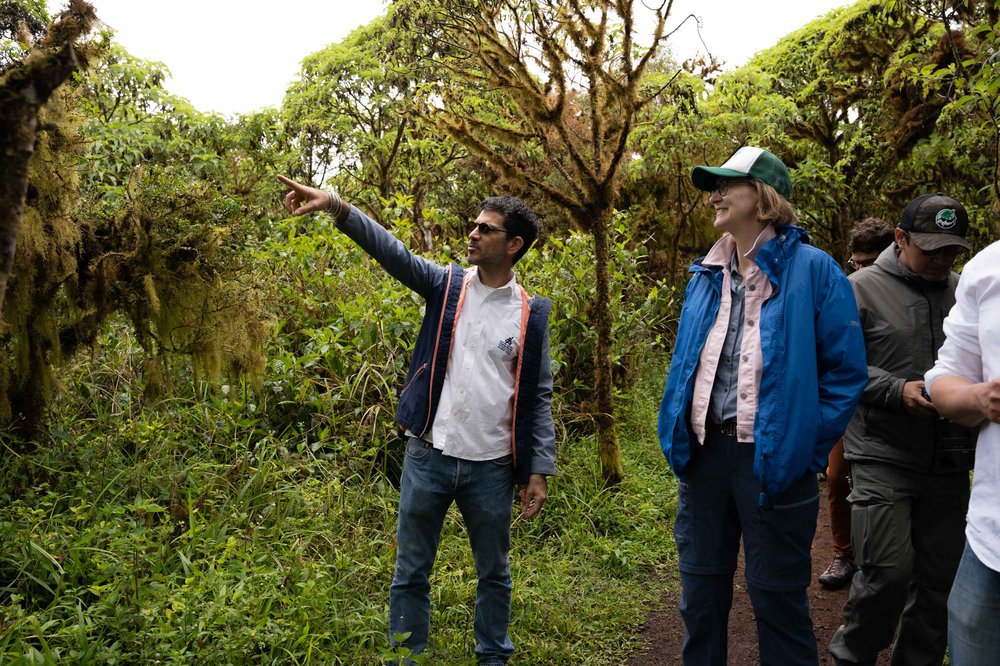On the 17th of October, the governments of Ecuador and Germany, through the KfW Development Bank, signed a 5-year agreement that will fund the implementation of the program "Biodiversity Protection in the Galapagos Islands", for a total value of 15 million euros.
These funds will be used to finance strategies for the prevention, control and eradication of invasive species such as the avian vampire fly (Philornis downsi) and the blackberry (Rubus niveus) – both under investigation by scientific teams from the Charles Darwin Foundation.
Commenting on the agreement, Rakan Zahawi, Executive Director of the Charles Darwin Foundation said: “The blackberry and Avian Vampire fly are invasive species currently posing some of the biggest threats to Galapagos. Controlling these species is very complex as they were introduced decades ago and have spread over large parts of the archipelago, affecting entire habitats. The effects are felt both in the Galapagos National Park as well as in the agricultural zone. But finding an effective biocontrol mechanism for both invasive species requires time and precision to find the exact species that will work without leading to unwanted impacts on the rest of the ecosystem. We are deeply grateful to KfW for their support in our quest to fight this threat for the good of the Galapagos islands.”

Charlotte Causton, principal investigator in charge of the project that’s studying the avian vampire fly, added: “Twenty endemic bird species, including 12 species of Darwin’s finches, are under threat from the Avian Vampire Fly, Philornis downsi. These flies lay their eggs in bird nests and their larvae feed on the young hatchlings, leading to malformations or death. The control of these flies is urgent if we want to save critically endangered species such as the Mangrove finch which has less than 100 birds left in the world. With the Galapagos National Park Directorate and a large group of collaborators, we have already made encouraging progress in understanding the behavior of these flies and now hope to further accelerate our research. Right now, our focus is on developing stop-gap measures to protect bird nests and evaluating the possibility of using biological control as a long-term option to control this deadly fly.”

Meanwhile, Dr Heinke Jäger, restoration ecologist and project lead for invasive blackberries, notes the damage this species causes to endangered Scalesia forests: "The invasive blackberry is posing a great threat to the unique Scalesia forests in Galapagos that had already been reduced to only 1% of their original distribution, due to land use changes in the past. If we lose the Scalesia forests, we will also lose a unique ecosystem made up of endemic species and associated bird and invertebrate species. Thanks to this agreement, we will be able to accelerate the search for a biological control agent for this devastating blackberry in Galapagos and establish a baseline against which we can monitor the effectiveness of the control agent, once released."
CDF will continue to create new partnerships and seek resources to advance scientific research for the conservation of the flora and fauna of this World Heritage Site.




